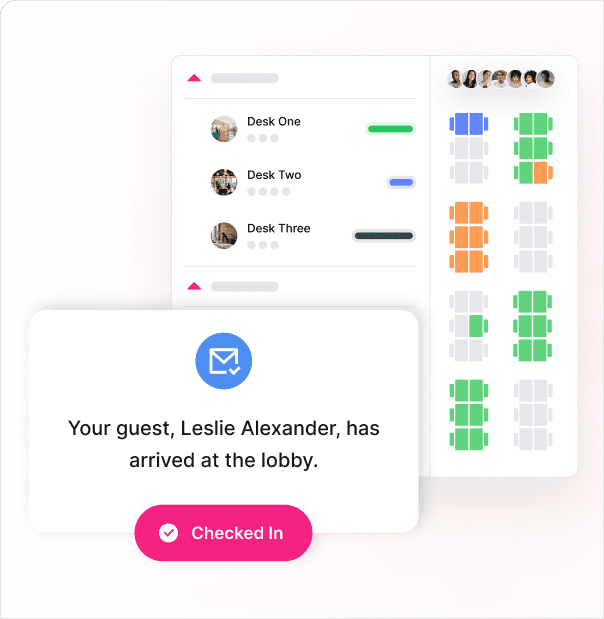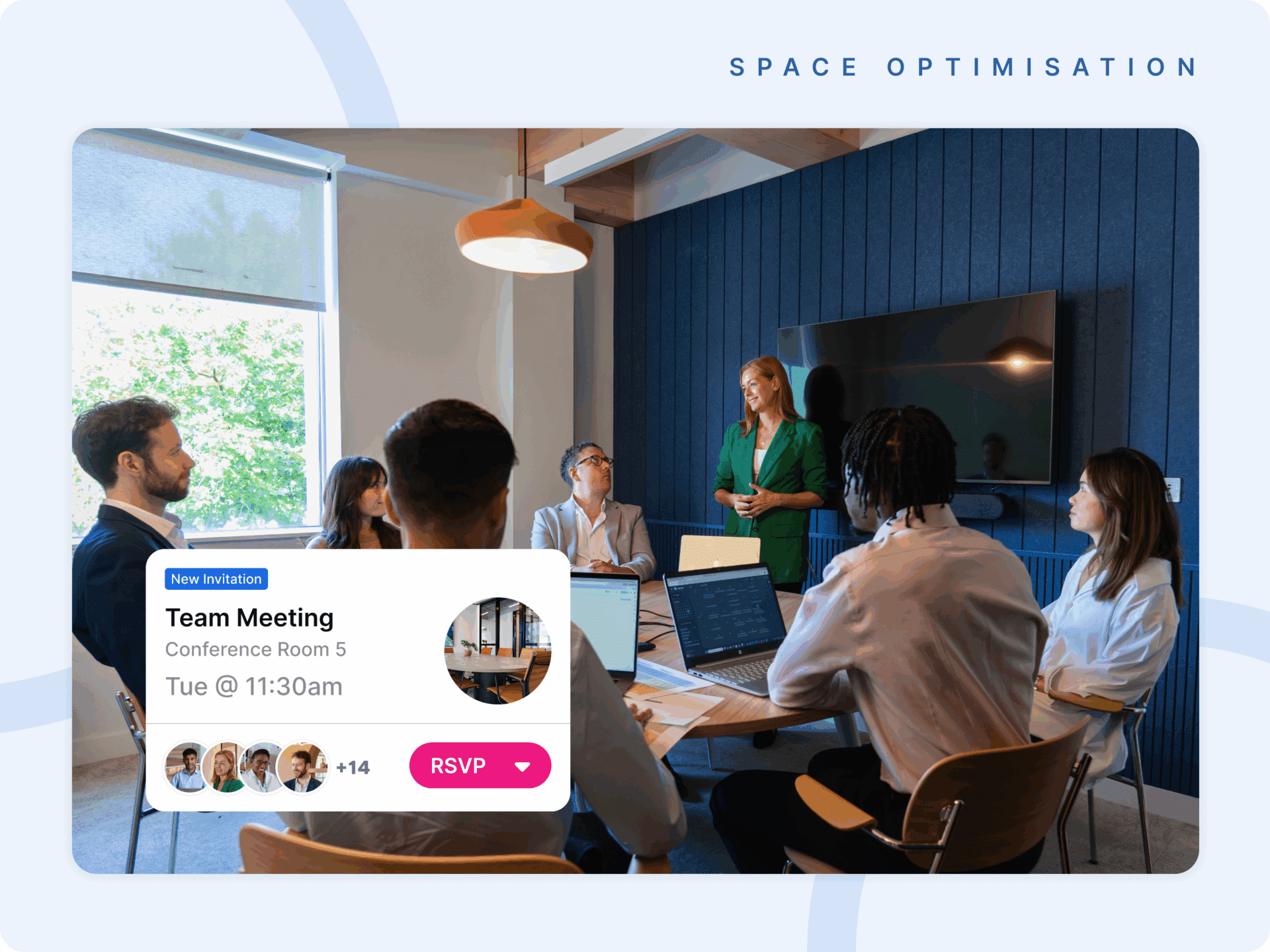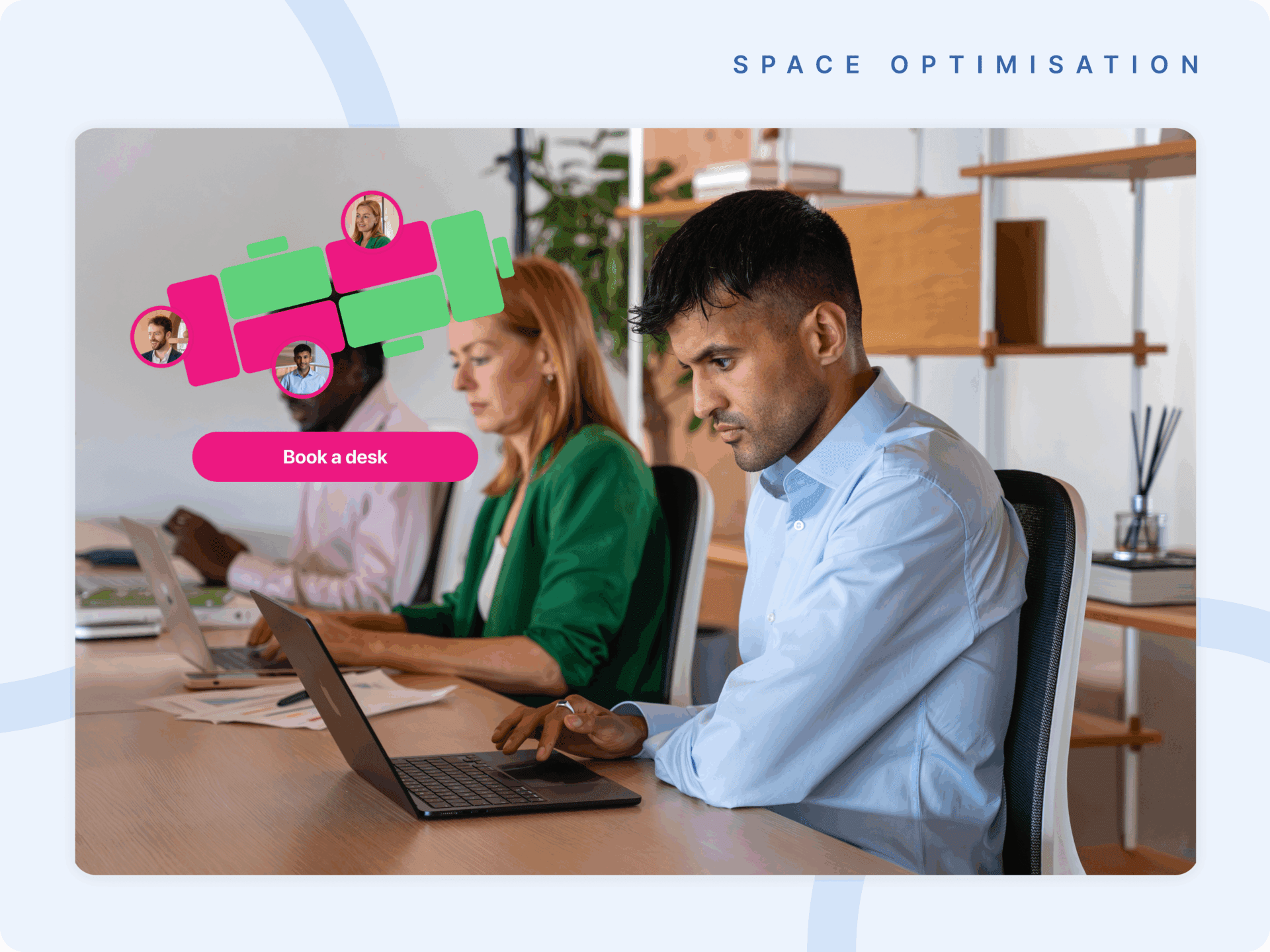Should your business still be hiring front desk receptionists? Or could other options save your company time and money without sacrificing customer service? Many companies have moved away from traditional reception strategies, and the trend is expected to continue well after the pandemic. Here are three reasons you might not need a front desk receptionist…
Times Have Changed – Hybrid Working Is The Future
Until about a decade ago, most offices had receptionists. However, with the emergence of various tech solutions, more companies have realized the advantages of using visitor management systems for handling repetitive tasks.
There are clear advantages to having dedicated receptionists for large corporations and other businesses that can afford it. But what if you are a small or micro company with limited resources? Chances are, you must strategize every hire to reach your goals. Few things can cost your business more than interruptions, like greeting a guest, answering the phone, or helping a delivery person. That is especially the case if your employees are pulled from their primary roles to fill an empty reception desk.
Three Types Of Human Receptionists
A dedicated receptionist (A.K.A. “front desk receptionist”) serves as the face of the company, and their job is to greet and assist people who come through the doors. This might include answering questions, facilitating sign-ins, directing a guest to refreshments or somewhere else in the building, or any number of other tasks.
A semi-dedicated receptionist handles all the responsibilities of a dedicated receptionist, except they have other duties to tend to between visitors. Office managers and administrative assistants often serve as semi-dedicated receptionists and are charged with tasks like data entry, schedule management, event planning, inventory management, and so forth.
Think about it… If a company ceases to keep dedicated or semi-dedicated receptionists on staff, a visitor will find the closest person they see for any questions or requests they have. It’s not difficult to see how constantly being interrupted can significantly hinder productivity and job satisfaction.
Hybrid Working Technology Is Better Than Ever
Consider how much work it used to require to book a vacation. There are so many moving parts in a solid travel plan, which is why many people once hired travel agencies to do it for them. Travel agents are still relevant, but now many people make their travel plans using online resources.
Likewise, new technologies continue to emerge for reception and office services. For example, a visitor management solution that enables you to create invites and space bookings simultaneously. That scratches the surface of the technology available to organizations that want to cut costs without losing customers.
Let’s take a look at several different forms of digital reception and the tools used for them:
Gateway receptionists are systems that control access to a building or a specific area of a building. Apartment buildings often use this kind of technology to monitor guests; if you visit a friend at their apartment and have to buzz in and wait until they let you in, you are going through a gateway receptionist. Many businesses use this technology, usually through a phone or intercom system.
Visitor management systems are also known as digital receptionists. Offices are beginning to purchase these technologies by the droves because they are becoming more helpful and affordable by the day. Essentially, a digital receptionist is a visitor sign-in app that guests can access through a tablet, laptop, or kiosk in an office reception area. Many systems even allow visitors to check themselves on their smartphones before appointments and meetings.
Digital receptionists are showing up in hotels, medical facilities, airports, and many offices. These systems can take care of many reception and office tasks, including:
- Gathering valuable visitor information (e.g., name, contact information, the purpose of the visit, check-in and check-out times, etc.).
- Capturing photos and print badges for visitors.
- Allowing visitors to complete and sign important paperwork.
- Automatically notifying host employees of visitor arrivals through phone, email, or team chat apps.
Virtual receptionists are human beings who handle nearly all the tasks of a dedicated receptionist, except they work remotely. A virtual receptionist will field phone calls, answer customer questions, schedule appointments and meetings, direct customers to specific departments, and more.

What Are The Perks Of A Virtual Receptionist?
Switching from a human receptionist to a virtual receptionist (aka Visitor Management System ‘VMS’) has some noteworthy advantages:
A VMS saves time: Using a virtual receptionist streamlines the booking process for visiting your workplace. Letting your VMS manage booking and check-ins makes it easier than ever to invite visitors while booking meeting spaces at the same time.
In addition, your VMS knows who is visiting your office in advance and in real-time, letting you optimize the utilization of your space and avoid maxing out the capacity in your office.
A VMS is more affordable: Switching from a human receptionist to a VMS eliminates a major expense for your company. With a VMS instead of a human receptionist, you can fulfill the same tasks for much lower costs. You can transfer calls, contact people, and perform similar tasks more efficiently without keeping your employees from completing more urgent jobs. Furthermore, technology removes the prospect of human error when collecting information while also allowing guests the freedom to enter their information at kiosks.
Turning to a VMS to handle booking and check-ins can elevate your visitor experience while keeping your workplace safer. Your visitors and employees’ safety is always a top priority, which makes switching to a VMS one of the best moves you can make for your business.




